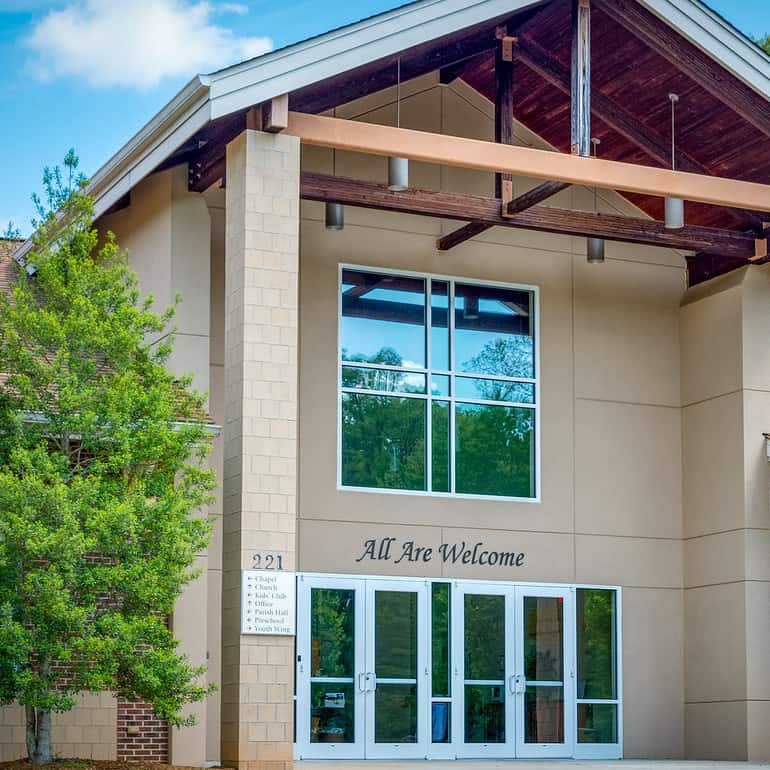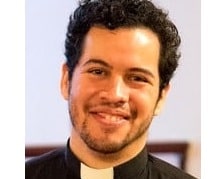A new meditation from Fr. Javier in the Hope for the Journey series. You can view the complete series here and join the discussion on Facebook.
When he came to Nazareth, where he had been brought up, he went to the synagogue on the sabbath day, as was his custom. He stood up to read, and the scroll of the prophet Isaiah was given to him. He unrolled the scroll and found the place where it was written:
“The Spirit of the Lord is upon me,
because he has anointed me
to bring good news to the poor.
He has sent me to proclaim release to the captives
and recovery of sight to the blind,
to let the oppressed go free,
to proclaim the year of the Lord’s favor.”
And he rolled up the scroll, gave it back to the attendant, and sat down. The eyes of all in the synagogue were fixed on him. Then he began to say to them, “Today this scripture has been fulfilled in your hearing.” All spoke well of him and were amazed at the gracious words that came from his mouth.
Luke 4:16-22
This is a popular passage of scripture: the beginning of Jesus’ ministry in the Gospel of Luke.
It’s an iconic scene. Nazareth’s native son stands up and proclaims the beginning of something new. He walks up to the pulpit, reads the ancient words, and lets the moment land. In Jesus’ deft handling of the scene, the words become a manifesto—one that seems to have resonance in every time and every place. (You’ll even find it in comic book universes, such as that of Luke Cage, the superhero with a Netflix series by the same name.)
And yet we often stop reading here. We know that a prophet isn’t welcome in their hometown. We’re familiar with how those who saw Jesus grow up ultimately rejected him.
When they heard this, all in the synagogue were filled with rage. They got up, drove him out of the town, and led him to the brow of the hill on which their town was built, so that they might hurl him off the cliff. (Luke 4:28-29)
What happened in between these scenes?
A much too-common interpretation is that the vision Jesus casts for society—that of good news to the poor, release to captives, and freedom for the oppressed—falls on deaf ears among a privileged crowd. The problem with this interpretation is that it assumes an audience that just wasn’t there: the people with whom Jesus grew up were not the well-to-do or the wealthy. On the contrary, Jesus was speaking directly to the poor and dispossessed—the have-nots in a world under Roman rule.
What really fills the crowd with rage, however, doesn’t make matters easier. Jesus, it turns out, has more to say after reading the Isaiah scroll:
And he said, “Truly I tell you, no prophet is accepted in the prophet’s hometown. But the truth is, there were many widows in Israel in the time of Elijah, when the heaven was shut up three years and six months, and there was a severe famine over all the land; yet Elijah was sent to none of them except to a widow at Zarephath in Sidon. There were also many lepers in Israel in the time of the prophet Elisha, and none of them was cleansed except Naaman the Syrian.” (Luke 4:24-27)
When reading this passage, it’s important to keep in mind that Jewish-Gentile relations were positive, on the whole—to read this passage as a judgement on the Jews of Jesus’ time for being ethnocentric and xenophobic would be to paint with too broad a brush. What the text suggests, however, is that Jesus has a habit of pushing people farther than they’d like on what it means to love one’s neighbor. Like the prophets of old, Jesus keeps expanding on the meaning of the Promise and challenging people to ask themselves hard questions. If this is our God, then who is our neighbor? To whom does Jesus want us to proclaim good news?
The answer to that question is always expanding. At St. Paul’s, we have a sign above our front entrance, a popular phrase among Episcopal churches: “All Are Welcome.” That sign is never merely a statement about who we are. Rather, it’s a challenge: a word about whom we always ought to aspire to be.

— Fr. Javier

For more parish resources and updates during the global pandemic, visit St. Paul’s Connects.

